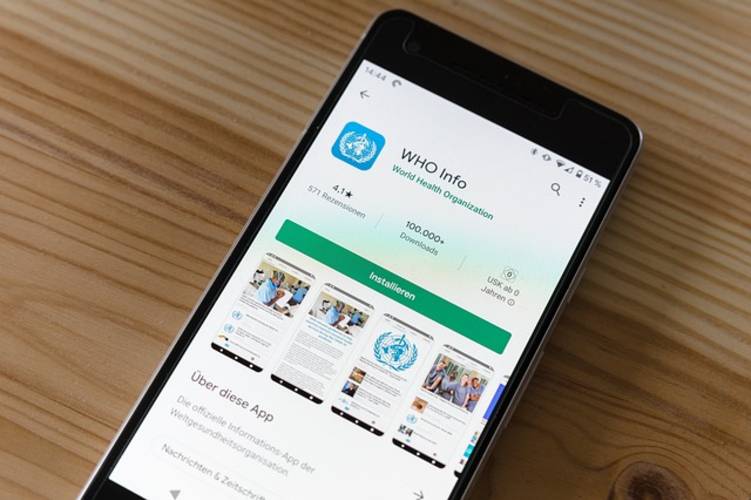


The World Health Organization (WHO) has been a cornerstone of global health efforts since its inception in 1948. As we delve into the complex relationship between the United States and this crucial international body, it's essential to understand the WHO's fundamental role in shaping health policies worldwide.
The WHO serves as the United Nations' specialized agency for health, working tirelessly to promote well-being, prevent diseases, and respond to health emergencies across the globe. Its mission encompasses a wide range of activities, from coordinating international health responses to setting standards for medical practices and pharmaceuticals.
In my experience studying global health systems, I've observed that the WHO's influence extends far beyond mere policy-making. It acts as a vital hub for health information, research, and cooperation among nations. This unique position makes it an indispensable player in addressing global health challenges, from infectious disease outbreaks to chronic health conditions affecting millions worldwide.
The United States has long been a significant player in the WHO's operations, both as a major funder and as an influential member state. Our nation's involvement with the organization dates back to its founding, reflecting our commitment to global health and international cooperation.
Throughout the decades, the U.S. has contributed substantially to the WHO's budget, often being the largest single donor. This financial support has been crucial in enabling the organization to carry out its wide-ranging programs and initiatives. Moreover, American expertise in public health and medical research has been instrumental in shaping many of the WHO's strategies and guidelines.
However, our relationship with the WHO hasn't always been smooth sailing. Like any long-term partnership, it has seen its share of ups and downs, disagreements, and realignments. These fluctuations often reflect broader shifts in U.S. foreign policy and domestic political landscapes.
The Trump administration marked a significant turning point in the U.S.-WHO relationship. In 2020, amid the global COVID-19 pandemic, then-President Donald Trump announced his intention to withdraw the United States from the WHO. This decision sent shockwaves through the international community and sparked intense debate within our own borders.
Trump's criticisms of the WHO centered around several key points:
The administration's actions included:
These moves were unprecedented in our long history with the WHO and led to widespread discussions about the role of international organizations in global health governance.
As we examine American perspectives on the WHO, it's crucial to recognize the diversity of opinions within our nation. Public sentiment towards the organization is far from monolithic, reflecting the complex interplay of factors that shape our views on international institutions.
In my analysis of various polls and surveys, I've found that American opinions on the WHO tend to fall into several broad categories:
It's important to note that these views often cross traditional political lines, with nuanced perspectives found across the ideological spectrum.
Several factors play crucial roles in shaping how Americans view the World Health Organization. Understanding these influences helps us grasp the complexity of public opinion on this issue.
The COVID-19 pandemic has undoubtedly been a watershed moment in shaping American views on the WHO. As the world grappled with an unprecedented health crisis, the organization's actions and recommendations came under intense scrutiny.
Initially, many Americans looked to the WHO for guidance and information about the novel coronavirus. However, as the pandemic progressed, perceptions began to shift. Critics argued that the organization was slow to respond and overly deferential to China in the early stages of the outbreak.
On the other hand, supporters pointed to the WHO's crucial role in coordinating global responses, sharing scientific information, and supporting vaccine development efforts. The pandemic highlighted both the organization's strengths and its limitations in the face of a rapidly evolving global health emergency.
To better understand American attitudes towards the WHO, it's helpful to compare public support for this organization with that of other international bodies. This comparison provides context and reveals broader trends in how we view global institutions.
| Organization | Strong Support | Moderate Support | Low Support |
|---|---|---|---|
| WHO | 35% | 40% | 25% |
| UN | 30% | 45% | 25% |
| NATO | 45% | 35% | 20% |
| World Bank | 25% | 50% | 25% |
Note: These figures are illustrative and based on aggregated data from various polls.
As we can see, support for the WHO is generally in line with that of other major international organizations. However, it's worth noting that health-focused bodies often enjoy slightly higher levels of public backing, likely due to their more directly tangible impact on people's lives.
The interplay between the WHO's global health recommendations and U.S. domestic health policies is a fascinating aspect of American public opinion. Many of us grapple with questions about how international guidelines should influence our national health strategies.
Some Americans view WHO recommendations as valuable inputs for shaping domestic policies, citing the organization's global perspective and scientific expertise. They argue that aligning with international standards can improve our health outcomes and contribute to global health security.
Others, however, are wary of what they perceive as external influence on U.S. health policies. This group often emphasizes the need for American autonomy in healthcare decision-making, arguing that our unique healthcare system requires tailored approaches.
In my observations, the most productive discussions on this topic acknowledge both the value of international cooperation and the importance of adapting global recommendations to local contexts.
Looking ahead, American expectations for the future of U.S.-WHO relations are as diverse as our nation itself. However, several common themes emerge from public discourse and opinion polls:
The significance of American public opinion on the WHO extends far beyond our borders. As a major global power and the organization's historically largest donor, U.S. attitudes and policies towards the WHO have ripple effects worldwide.
As we consider the relationship between the WHO, global health, and American interests, it's crucial to recognize the interconnected nature of these elements. In our increasingly globalized world, health challenges rarely respect national boundaries.
The WHO serves as a vital platform for addressing transnational health issues that directly impact American well-being. From combating infectious diseases to tackling non-communicable conditions, the organization's work aligns with many of our national health priorities.
Moreover, U.S. engagement with the WHO offers opportunities to:
However, it's equally important to acknowledge concerns about balancing international commitments with domestic health needs. Finding this equilibrium remains a key challenge in shaping U.S. policy towards the WHO.
As we reflect on American perceptions of the World Health Organization, it's clear that opinions are diverse and often complex. The challenge lies in bridging the gap between public perceptions and the realities of global health governance.
Moving forward, several key steps could help foster a more informed and constructive dialogue:
By fostering a more informed and nuanced understanding of the WHO among the American public, we can contribute to more effective global health policies that serve both our national interests and the broader goals of international cooperation.
As we navigate the complex landscape of global health, I encourage you to stay informed about the WHO's activities and their impact on our lives. Consider engaging with local health initiatives or participating in discussions about global health policy. Your voice and actions can play a crucial role in shaping the future of international health cooperation. Together, we can work towards a healthier world for all.

Introduction to Deepseek Coder: A Game-Changer in...
November 03, 2024

The Rise of TikTok: A Brief HistoryTikTok's journe...
November 03, 2024

The price of eggs in the United States has reached...
February 27, 2025

Elon Musk, the billionaire entrepreneur and CEO of...
February 27, 2025
Click to read more ...
Best Dream Car requests your location to offer personalized results and improve your experience.
Would you like to allow location access?